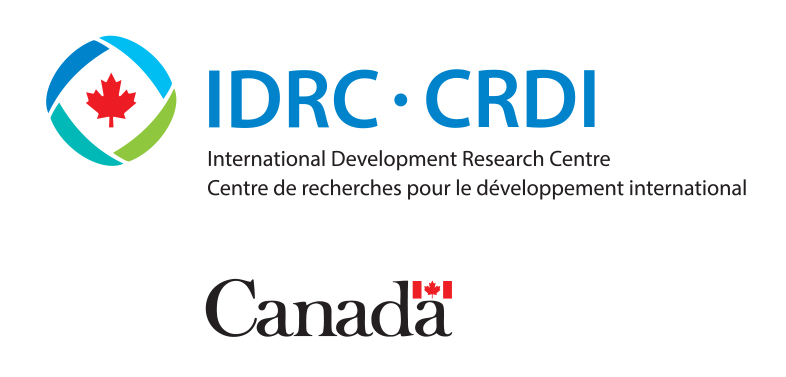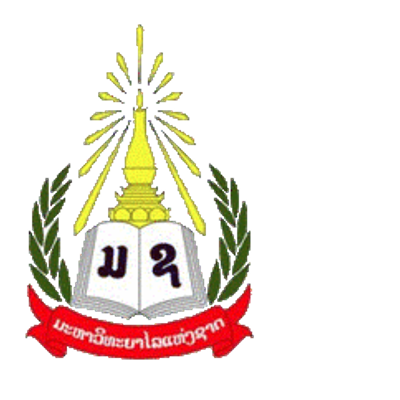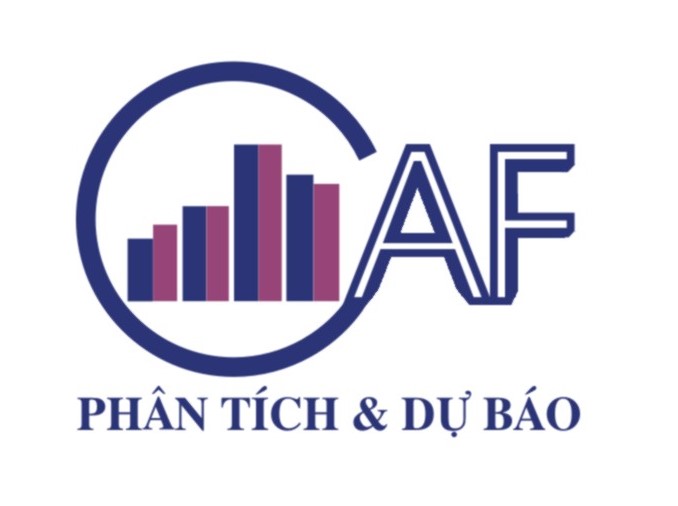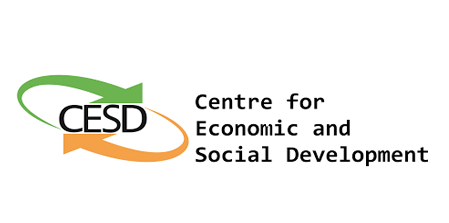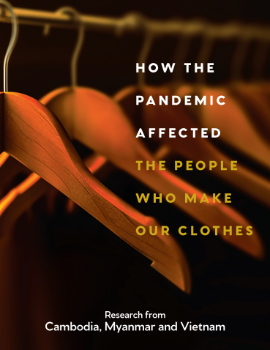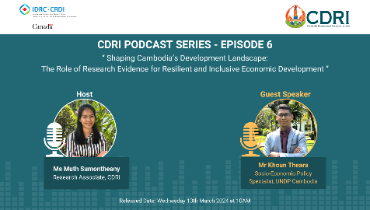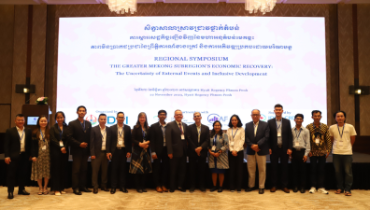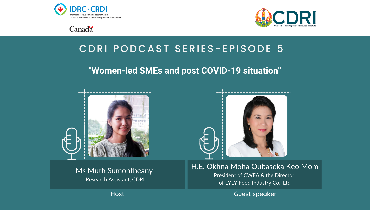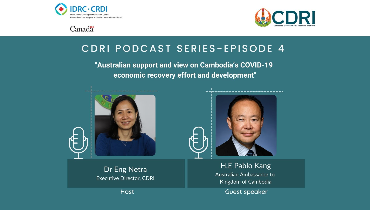The Impact of COVID-19 on Inclusive Development and Governance: Rapid and Post-Pandemic Assessment in the CLMV
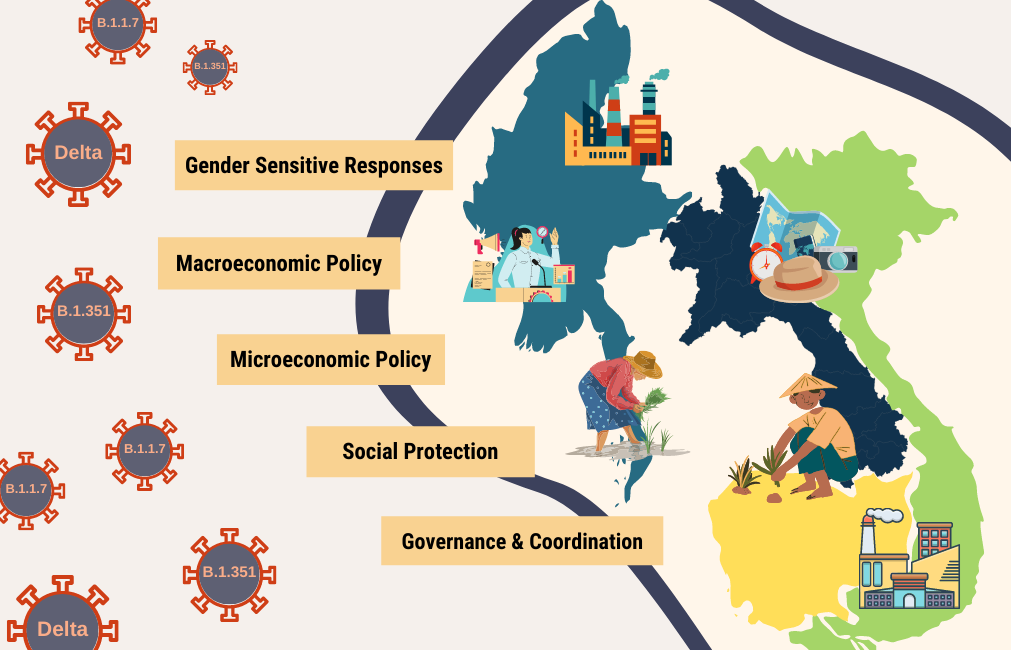
In close coordination with local governments and organizations, the project will identify gender-sensitive policies and good practices from the macro to micro level that will support the recovery process and improve resilience among vulnerable women workers and micro, small, and medium enterprises. It will facilitate policy dialogue and coordination among researchers, policymakers, private sector actors, civil society, and women’s organizations in the response and recovery phases. Finally, it will enhance the capacity of the implementing consortium members to create partnerships, cooperation, and learning at the regional level with international dialogues, comparative research activities, and by engaging regional organizations.
Project Objective
The objectives are to:
(1) assess the effects of COVID-19 pandemic on socio-economic wellbeing of women, vulnerable groups (informal included) and micro, small and medium-sized enterprises, focusing on women-led establishments; (2) examine policy measures and support for a more inclusive, sustainable and resilient recovery; and (3) improve policy dialogue between researchers, private sector, women business associations, civil society organisations and policymakers in the Mekong subregion with empirical evidence generated under the project.
To achieve these objectives, our research questions are:
Pillar 1 Macro-economic responses | - RQ1: To what extent fiscal and monetary policies the government can/should adapt and adopt to respond and mitigate risks posed by Covid-19? To what extent are these policies gender sensitive? - RQ2: How does the gender-sensitive and inclusive economy pathway look like in the Greater Mekong Subregion countries? - RQ3: What is the impact of COVID-19 on cross-border trade and investment? And how does it affect supply chains (domestic, regional and/or global)? |
Pillar 2 Social protection and MSMEs | - RQ1: How does the Covid-19 pandemic affect micro, small and medium enterprises? - RQ2: What is the impact of COVID-19 on women’s employment, income, labour mobility and unpaid care work? - RQ3: What are the options for immediate employment and social policy responses in supporting workers, mostly female and informal, and MSMEs in the fight against COVID-19? |
Pillar 3 Governance and coordination | - RQ1: What is the existing coordination mechanism in the implementation of the policy responses by the government? - RQ2: What are the gender mainstreaming mechanisms that are put in place by the government in the pandemic time? - RQ3: What is the impact of COVID-19 on democratic governance and political participation in the light of upcoming elections in November 2020? (Specific for Myanmar) |
Gender Analysis and Strategy
Considering the tremendous social and economic impact Covid-19 has on women and girls, gender-sensitive analysis is at the top of project priority. In hoping to understand such impacts and to be able to provide a gender-sensitive policy recommendations, gender-disaggregated analysis is incorporated as much as the framework and data allows. Table below summarizes the Gender Analysis and Strategy.
| Research Process | Analysis and Strategy |
| Research Analysis | Gender-disaggregated measurements and indicators (non-exhaustive list)
|
| Research Implementation |
|
Targeted Audience
To make sure that the answers to these questions are responding to the current issues and needs, we seeks involvement and cooperation from relevant stakeholders, both governmental and non-governmental. The prioritized government ministries include Economy and Finance; Commerce; Labour and Vocational Training; Agriculture Forestry and Fisheries; and Women’s Affairs. Local association and organisations such as informal economy association, labour association, trade unions, and women association are also targeted.
Project Members
Publications
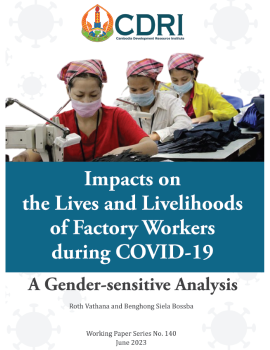
Impact on the Lives and Livelihoods of Factory Workers during COVID-19
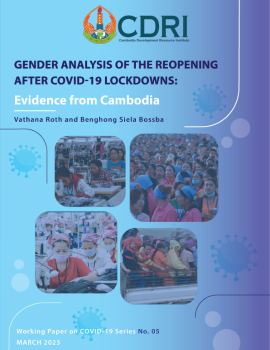
Gender Analysis of the Reopening After COVID-19 Lockdowns: Evidence from Cambodia

Types and Implementation of Social Assistance under the Context of COVID-19: A Case of Garment and Textile Manufacturing in Cambod...
News & Events
Other Projects
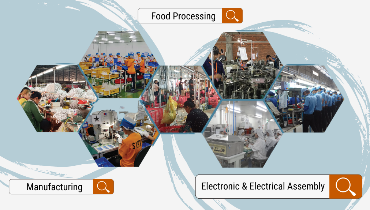
Contribution of Vocational Skills Development to I...
The project is implemented in two phases. Phase 1 focuses on the demand side of the labour market in garments, electronic and electrical as...
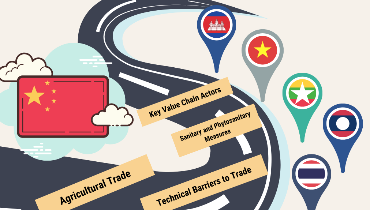
Agricultural Trade between China and the Mekong-La...
This regional project aims to investigate the agricultural value chain of two selected products exported from Cambodia, Laos, Myanmar, Tha...

On the Salience of Memories and Socio-Economic and...
A collaboration with a team of researchers from the University of Ludwig-Maximilians (LMU), Munich to conduct an experimental survey to inve...
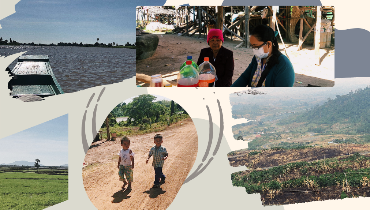
The 2020 Round of Panel Data Collection for Agricu...
CDRI has collected and maintained a panel data of households in rural Cambodia. The work started in 1996-97 when CDRI conducted a benchmark...















